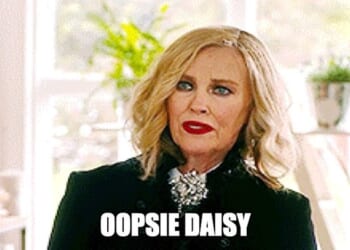Gareth Bacon MP is the Shadow Secretary of State for Transport.
Transport has always been more than about how we get from A to B. It is the story of civilisation in motion.
Britain’s rise to global prominence was forged on the furnace of transport innovation. The steam train did not simply carry goods and passengers, but it carried the very momentum of the Industrial Revolution. It shrank distances, widened markets, and lit the spark of modernity.
The Midlands grew with the rhythm of rail and the lifeblood of canal. Manchester’s engine was the canal, pumping cotton and coal into an empire. Liverpool stood astride the world, its docks humming with maritime trade that bound continents. The Liverpool and Manchester Railway, the world’s first truly modern intercity line knitted industry and port together. These were the arteries of our national prosperity. And with unprecedented speed and scale, Britain redefined the limits of ambition.
The London Underground was an absolute marvel of engineering and a statement of faith in the future. Beneath the capital’s crowded streets, a quiet revolution unfolded. In 1863, as the Metropolitan Railway opened, it redefined the scale of a city. It was the first of its kind, an idea so bold it seemed unthinkable, until Britain made it real. And from that dark, rattling promise, every underground system in the world took its cue.
Powered by coal and forged in steel, the valleys of South Wales thundered into the industrial age, their raw energy channelled from pit to port along a mesh of railways that carried the nation’s might to the world. Glasgow earned its place as the Second City of the Empire through the power of the Clyde. Dredging, dock construction and shipbuilding turned a regional town into an industrial titan.
But somewhere along the way, the engine faltered. Growth stuttered. The confidence to build, to innovate, to dream big, drained away. Transport is no longer seen as nation-building. Yet it remains exactly that.
Across the globe, nations understand the power of infrastructure to propel growth. China and Japan race ahead with high-speed rail and the future of transit systems. Saudi Arabia, building in unforgiving deserts, is proving that ambition can triumph over geography.
We once pioneered, and that legacy should be a launchpad.
So why, in Britain, does it take over £100 billion to connect London and Birmingham by high-speed rail? Why is crossing the Solent, just a few miles of water, among the most expensive ferry journeys in the world?
We must not fall into the trap of nostalgia, but neither should we ignore the lessons of history.
Radical policy renewal is a necessity. Under new leadership, the Conservative Party is reimagining the purpose of transport as a bold lever of national growth and reinvention. That’s why we are undertaking a policy renewal programme for the next generation.
This programme will allow us to shape a serious, strategic vision that addresses the challenges Britain faces today and prepares the nation for tomorrow. Nowhere is long-term thinking more critical than in transport, where infrastructure takes decades to plan, deliver, and mature. As part of this, we will convene meetings, visits, roundtables, and expert engagement sessions.
The Conservative Party has always believed that it is enterprise that powers Britain forward. That belief will sit at the heart of our renewal. We will bring together the voices that shape our economy: entrepreneurs, industry leaders, planners, thinkers, and builders. Those with the insight and experience to help craft a transport policy that is ambitious, practical, and built to last.
But to chart a bold course forward, we must begin with honest reflection. We must understand where our systems strain, where ambition has thinned, and where decades of tinkering have left hollow frameworks in place of living infrastructure.
Despite repeated attempts at reform, Britain still operates one of the most expensive rail systems in Europe. How did the country that laid the tracks for the world lose its footing at home?
And as Great British Railways prepares to take shape, we face a pivotal question: will reuniting track and train unleash the potential of our network, or simply rearrange its organisation? We will ask whether this transformation can deliver efficiency, reliability, and affordability. And as the influence of trade unions grows under Labour, we must explore how to strike a balance, between the rights of workers and the reform the system undoubtedly needs.
Our roads were once symbols of freedom, opportunity, and movement. Today, for too many, they have come to represent rising costs and shrinking returns. We must ask why after billions paid in motoring taxes, are potholes still left to widen, and bridges left to age? Why, despite a fuel duty freeze, do pump prices continue to climb? We will re-examine the entire system of motoring taxes and charges to ask whether it truly serves a nation that must move further, faster, and freer.
Flying opens up horizons, shrinks distances, and links families and firms alike. But in recent decades, costs have soared, and hopes of affordable air travel have become more elusive for many. Despite rising efficiency and competition, prices continue to climb. Aviation is a vital artery of regional growth, global trade, and modern life – it deserves a policy framework that recognises this role and unleashes its potential.
The local bus is the unsung hero of our public realm. For millions, it is a lifeline, linking school runs, hospital visits, family connections, and jobs. And yet, in too many communities, especially our rural ones, those lifelines are fraying. We will explore whether it is possible to make these vital services viable once more, without leaning endlessly on taxpayer subsidy.
Integration will be key.
Ports, roads, railways, and utilities must speak to each other, because joined-up infrastructure unlocks joined-up opportunity. Our ports should be gateways to the world. Our freight systems should be the current of our economy. And above all, we must realise a nation’s ability to build is a test of its self-belief.
We must be honest about what’s not working. And we must be courageous in changing it. If we cannot lay track, resurface roads, or run reliable buses, what hope have we of leading in a world that moves faster every day?
This is not just about fixing potholes or shaving minutes off a commute. It is about reclaiming transport as a driver of national renewal, a force that powers productivity, unlocks opportunity, and lifts communities. Our roads, railways, ports, and skies can once again be the stage on which Britain writes its next chapter of economic leadership.
Because when Britain builds, Britain rises.



![‘It’s a Recipe for a Hundred Years of National Dominance’: Stephen Miller [WATCH]](https://www.right2024.com/wp-content/uploads/2025/05/Stephen-Miller-Completely-Obliterates-CNN-Host-Over-Her-Illegal-Immigration-350x250.jpg)

![Trump Posts Hilarious Pope Meme, Leftists Immediately Melt Down [WATCH]](https://www.right2024.com/wp-content/uploads/2025/05/Trump-Posts-Hilarious-Pope-Meme-Leftists-Immediately-Melt-Down-WATCH-350x250.jpg)

![Wild Road Rage Brawl Erupts in Milwaukee [WATCH]](https://www.right2024.com/wp-content/uploads/2025/05/Road-Rage-Turns-Violent-in-Oregon-Minivan-Mows-Down-Motorcyclist-350x250.jpg)



![Karoline Leavitt Calls for Jill Biden to Answer for Joe's Cognitive Decline Cover-Up [WATCH]](https://www.right2024.com/wp-content/uploads/2025/05/Karoline-Leavitt-Calls-for-Jill-Biden-to-Answer-for-Joes-350x250.jpg)




